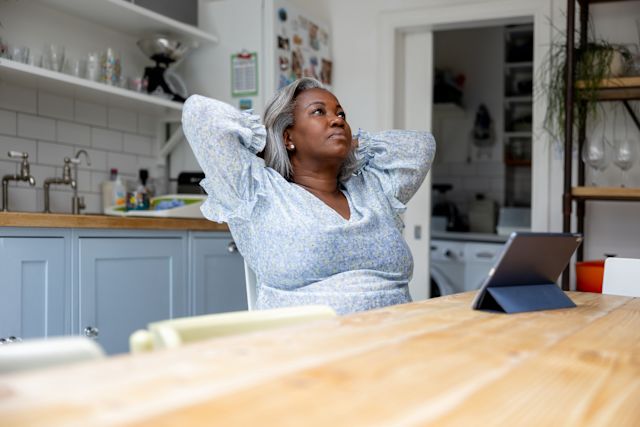Ever felt mildly anxious before a public speaking engagement? How about that big first date with someone special? Once you settled into whatever it was that sparked your initial discomfort, you may have found it wasn't so bad after all. But if fear and uncertainty make you feel overwhelmed—or interfere with how you function throughout your day—you may be suffering from an anxiety disorder.
Anxiety affects millions of people
In any given year, there are several types of anxiety disorders that affect nearly 40 million Americans age 18 and older, according to the National Institute of Mental Health. They are more prevalent in developed countries than less-developed ones, often go hand-in-hand with other mental and physical illnesses and affect more women than men. Common signs and symptoms of an anxiety disorder generally fall into two camps: emotional and physical.
Emotional symptoms can include:
- Always feeling worried or tense
- Trouble focusing on work, school or on family obligations
- Irrational fears that won't go away
- Feelings of impending doom or dread
- Avoiding places or other parts of daily life that cause you anxiety
- Restlessness
- Irritability
- Sudden, out-of-the-blue panic attacks
Physical symptoms can include:
- Pounding heart or chest pain
- Upset stomach or digestive problems
- Dizziness
- Sweating
- Shortness of breath
- Headaches
- Tense muscles
- Low energy or fatigue
- Sleep problems
Each anxiety disorder is different
Doctors have identified six different types of anxiety disorders.
Generalized anxiety disorder (GAD): Do you worry about everything or always think something bad is about to happen? If so, it could be generalized anxiety disorder. Your healthcare provider (HCP) may diagnose you with GAD if you worry excessively about a variety of everyday problems for at least six months.
Panic disorder: Does a sense of panic or dread set in repeatedly, without any warning? This feeling is common for people with panic disorder. Attacks may peak within 10 minutes, but symptoms can last much longer. Fear of another attack can add to the anxiety.
Obsessive-compulsive disorder (OCD): If you're consumed by upsetting thoughts and lean on rituals to control the anxiety these thoughts produce, you may be suffering from OCD. An example of OCD behavior is obsessing over germs or dirt and feeling compelled to wash your hands over and over again.
Social anxiety disorder: If everyday social situations are too much to handle, or you live in chronic fear of being watched and judged by other people, social anxiety disorder could be at the root of your problems.
Phobias: This disorder relates to irrational fears of specific things or situations that often pose no real danger, but bring on a panic attack or severe anxiety. Common phobias include extreme fear of closed-in spaces, heights, driving, flying and animals.
Post-traumatic stress disorder (PTSD): You don't have to be a war veteran to suffer from PTSD—it can result from a variety of traumatic incidents. Possible causes include physical abuse, sexual assault, a violent car crash or even surviving a natural disaster.
If you suffer from any of the symptoms or disorders listed above, seek treatment from your HCP or other healthcare professional.






